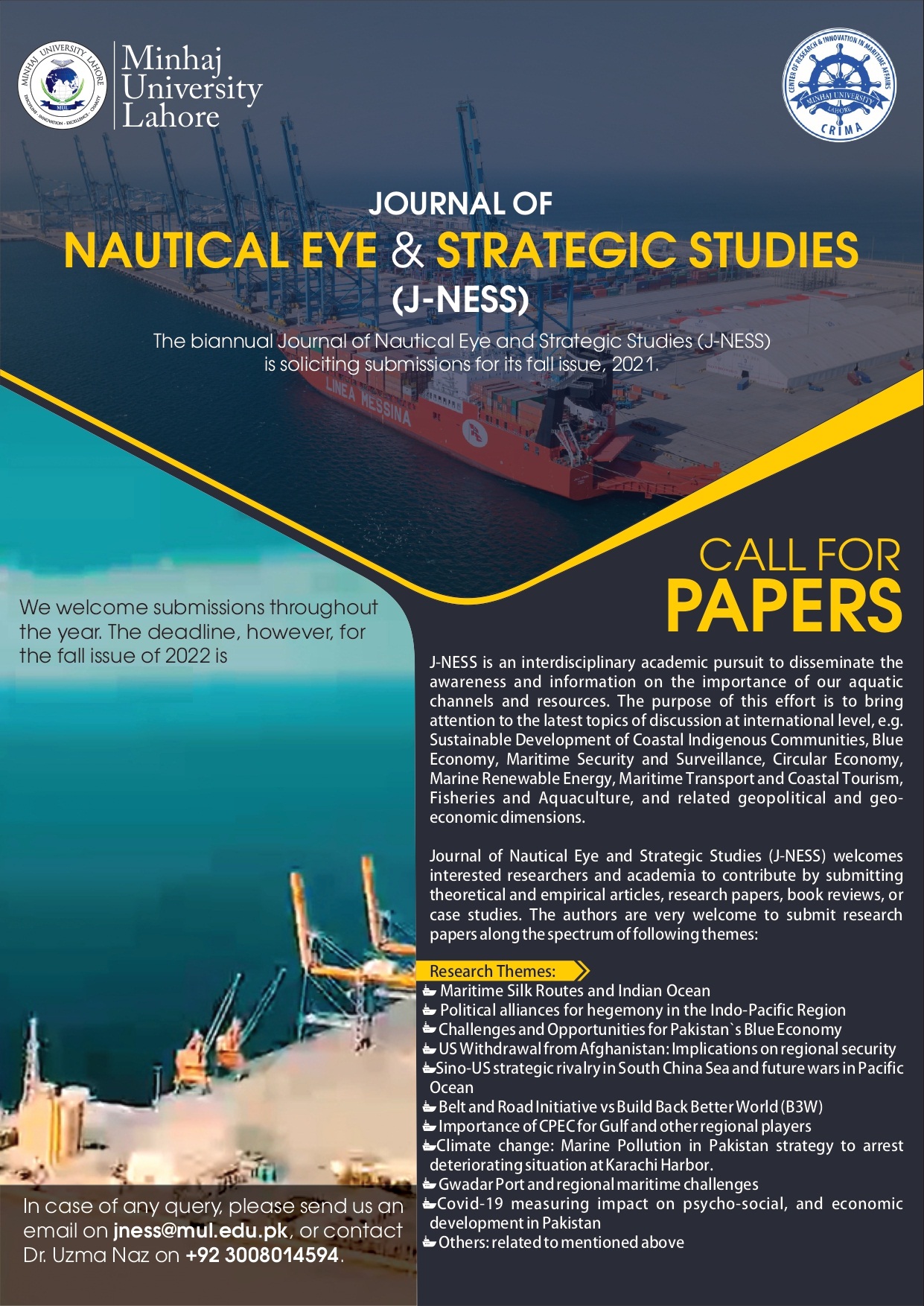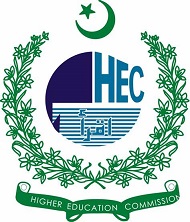The Evolving Dynamics of Pakistan-Afghanistan Relations under the Islamic Emirate of Afghanistan (IEA) Regime: A Comprehensive Analysis and Prospects
DOI:
https://doi.org/10.58932/MULG0026Keywords:
Afghanistan-Pakistan Relations, Regional Cooperation, IEA Regime, TalibanAbstract
This research examines the intricacies of the bilateral relations between Pakistan and Afghanistan in the aftermath of the Taliban's assumption of power in August 2021. The study emphasises the impact of regional and global factors on the dynamics of their relationship and the evolving security landscape in Afghanistan under the Taliban. A significant concern looming within Pakistan’s strategic community is the possible future trajectory of relations. To answer this geopolitical riddle, the study uses a scenario analysis framework. The study finds that Pakistan-Afghanistan concerns can go in one of three possible directions: cooperation, hostility, and coexistence. The study produces valuable insights based on scenario methodology while challenging existing assumptions. It would help policymakers to preempt policy decisions in an informed manner to propose practical policy recommendations for peaceful coexistence. Consequently encouraging pragmatism, negotiations, inclusive political settlements, collaborative efforts to address security challenges, and economic integration through regional connectivity enterprises. The significance of regional and global collaboration in ensuring the prosperity and security of Afghanistan and the broader region is highlighted through comprehensive insights and actionable policy recommendations The study aims to facilitate informed decision-making and pave the way toward lasting peace, development, and prosperity in the region.
References
Carlotta Gall, “The Wrong Enemy: America in Afghanistan, 2001–2014” (Boston: HMH, 2014).
Elizabeth Threlkeld and Grace Easterly, “Afghanistan-Pakistan ties and Future stability in Afghanistan,” United States Institute of Peace, August 2021, https://www.usip.org/sites/default/files/2021-08/pw_175-afghanistan_pakistan_ties_and_future_stability_in_afghanistan.pdf.
Emilia Alaverdov, “The Importance of Regional Triangular-India-Pakistan-Afghanistan and Russian Interests in the Region,” Journal of Education Culture and Society 13, no. 2 (2022): 85-94.
Fayaz Gul Mazloum Yar, Ihsanullah Ihsan, and Mohammad Shafiq Hafiz, “Analyzing the Role of Great Powers in Creating the Durand Line and its Impact on Afghanistan-Pakistan Relations,” Randwick International of Social Science Journal 3, no. 4 (2022): 673-86
Fred Halliday and Zahir Tanin, “The communist regime in Afghanistan 1978–1992: Institutions and conflicts,” Europe-Asia Studies, 50, no. 8 (1998): 1357-80.
Ghulam Ali, “China–Pakistan Cooperation on Afghanistan: Assessing Key Interests and Implementing Strategies,” The Pacific Review 35, no. 3 (2022): 506-28.
Gregory Winger, “The Nixon Doctrine and US Relations with the Republic of Afghanistan, 1973–1978: Stuck in the Middle with Daoud,” Journal of Cold War Studies, 19, no. 4 (2017): 4-41.
Hafiza Yazdani, “History of Formal Education and Influence of Politics in Afghanistan,” Journal of Peace Education and Social Justice, 14, no. 2 (2020): 120-39.
Hashmat Ullah Khan, Wang Li, and Khalid Iqbal, “An Explorative Probe into Pakistan’s Engagement with Central Asia,” Human Nature Journal of Social Sciences 4, no. 1 (2023): 51-62.
Hassan Abbas, “The Forgotten History of Afghanistan-Pakistan Relations,” Yale Journal of International Affairs, September 2014, https://www.yalejournal.org/publications/the-forgotten-history-of-afghanistan-pakistan-relations.
Kalsoom Hanif, Saima Butt, and Sadia Ashraf, “Determinants of Pakistan–Afghanistan Relations Past, Present and Future,” Multicultural Education 7, no. 4 (2021): 273-77.
Kosar Jabbin et al., “The Implications of SAFTA (South Asia Free Trade Agreement) for Pakistan.”
Misbah Muhammad Nasim, “Political and Security Alliances between GCC and Pakistan: ‘Saudi Arabia, Oman and Qatar (1970-2019)’,” Master’s thesis, University of Karachi, 2021.
Muhammad Farooq, “Indian Engagement with Taliban-Led Afghanistan and Implications for Pakistan,” Margalla Papers 26, no. 2 (2022): 87-95.
Prabhash Ranjan, “India-Afghanistan Trade and International Law,” Global Trade and Customs Journal 17, no. 1 (2022).
Prof Javaid, “Analyzing the Dynamics of Pakistan-Afghanistan Relations: Past and Present,” South Asian Studies 31, no. 1 (2020).
S. Yaqub Ibrahimi, “The Taliban’s Islamic Emirate of Afghanistan (1996–2001):‘War-Making and State-Making’as an Insurgency Strategy,” Small Wars & Insurgencies 28, no. 6 (2017): 947-72.
Sajid Ali, Syed Umar Farooq, and Rab-Nawaz Lodhe, “A Qualitative Paper-Factors Affecting the Transit Trade,” in Proceedings of the 3rd International Conference in Accounting and Finance Innovation (Aveiro: UA Editora–Universidade de Aveiro, 2022), 1.
Sanat Pai Raikar, “Durand Line,” Encyclopædia Britannica, last modified October 8, 2021, https://www.britannica.com/event/Durand-Line.
Seswita, “Bacha Posh: A Cultural Practice in Afghanistan as Seen in Nadia Hashimi’s The Pearl That Broke Its Shell: Resilience against Patriarchy," in Proceedings of the 1st International Conference on Gender, Culture, and Society, ICGCS 2021, 30-31 August 2021, Padang, Indonesia (Padang: ICGCS, 2022).
Yelena Kalyuzhnova and Hans Holzhacker, “Enhancing Connectivity and Trade between Central Asia Regional Economic Cooperation Countries and the World: Benefits, Risks and Policy Implication,” ADBI Working Paper Series, no. 1271 (Tokyo: Asian Development Bank Institute, 2021).
Zahid Shahab Ahmed and Abdul Basit, “Turkey’s Relationship with Afghanistan and the Pakistan Factor: An Examination of Historical and Geopolitical Factors,” in Turkey’s Asia Relations, ed. Emre Erşen and M. Evren Tok (Cham: Springer International Publishing, 2022), 113-30.
Downloads
Published
How to Cite
Issue
Section
License
Copyright (c) 2023 Journal of Nautical Eye and Strategic Studies

This work is licensed under a Creative Commons Attribution-NonCommercial 4.0 International License.











